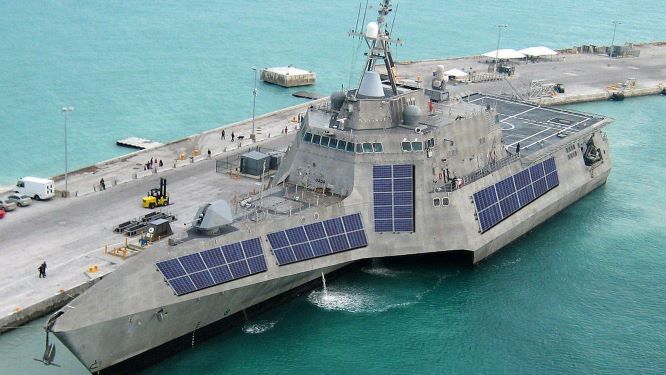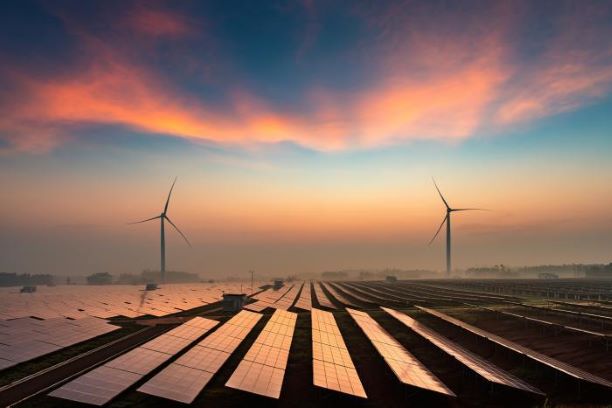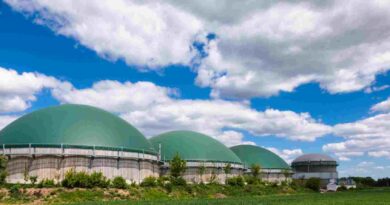Indian Navy Sails Towards RE With 24-MW Solar Projects
 Indian Navy ship INS Sarvekshak with solar panels
Indian Navy ship INS Sarvekshak with solar panels
Demand for energy spurred over the past two decades on the back of unprecedented growth of the Indian economy. In line with this, the government’s energy policies saw a paradigm shift over the period and inclined more towards trimming carbon footprints through alternate energy sources.
“The efforts undertaken in the last few years have started to fructify now. Twenty-four MW of solar PV projects consisting of both rooftop and land-based solar panels are under execution at various shore establishments of the Navy under the Jawaharlal Nehru National Solar Mission,” the statement said.
With an aim to contribute towards achieving India’s energy and environmental goals, the Indian Navy has developed a roadmap called Indian Navy Environment Conservation Roadmap (INECR).
The roadmap envisions ‘Reduction in Energy Consumption’ and ‘Diversification of Energy Supply’ as the key result areas. Further, this INECR has been formulated with specific action plans covering the entire gamut of operations, maintenance, administration and infrastructure/ community living.
Under this Indian Navy’s roadmap, various policies have been discussed with an aim to cut energy consumption and environment sustenance for all its ships as well as shore establishments.
Further, it has pledged to contribute 1.5 percent of its ‘Works’ Budget for the generation of renewable energy including solar photovoltaic (PV) projects being one of the focus areas.
Under Jawaharlal Nehru National Solar Mission (JNNSM), solar PV projects of 24 MW comprising both rooftop and ground-mounted are already under execution at Indian Navy’s various shore establishments.
Besides, Indian Navy has also taken up few pilot projects which utilize wind or hybrid (both wind and solar) as a source of energy. These projects not only aim to reduce carbon footprint but also help achieve self-sustenance in energy security.
Meanwhile, the Ministry of Defence said in a statement that, it has paid focused attention towards the use of renewable sources of energy and institution of various energy conservation measures such as use of occupancy sensors, battery operated vehicles, solar street lights, LED lights, the audit of yards, SCADA based electric metering etc.
Published with the permission from Saur Energy








